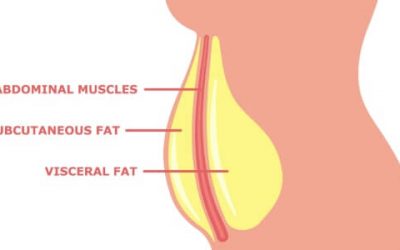 After successfully dieting for several months, you have a slip up. And not just any slip up, but the BIG one. Maybe you devoured an entire pizza after a bar crawl, or maybe you failed to restrain yourself while at a buffet with friends. Whatever the reason, it’s not important. What’s important is what you do now. How do you pick yourself back up after a diet failure?
After successfully dieting for several months, you have a slip up. And not just any slip up, but the BIG one. Maybe you devoured an entire pizza after a bar crawl, or maybe you failed to restrain yourself while at a buffet with friends. Whatever the reason, it’s not important. What’s important is what you do now. How do you pick yourself back up after a diet failure?
Remember you’re only human
It’s easy to forget. The media paints an image of perfection we all try to attain. However, who out there is really perfect? Think about your friends and family members. Are any of them perfect? Likely not. As humans we’re all flawed in one way or another.
So instead of focusing on your shortcomings (like many of us often do), acknowledge what you’ve accomplished during your time dieting. If you’ve dropped several pounds since you started, if you’ve reduced the amount of sweets you eat, if you now drink more water on a daily basis, pat yourself on the back and celebrate what you’ve accomplished. This will help you recognize your ability to achieve goals, and provide motivation to keep on going.
Revisit your purpose
Think back to when you first started your diet. What caused you to take action? What caused you to make a change? Undoubtedly there was a reason behind it. And you likely had some goals in mind. Maybe it was to fit into your favorite pair of jeans again, or maybe it was to lower your cholesterol levels. Whatever the reason, revisit and evaluate your goals.
Your goals should include both short and long-term objectives. What do you want to accomplish this month? What do you want to accomplish by the end of the year? Flesh out your goal as much as possible so that it’s crystal clear. Ask yourself, what will your life look like once you’ve accomplished it? How many pounds will you weigh? How will you feel when you wake up in the morning? How many servings of fruits or vegetables will you eat a week?
Once you have these answers, work backwards and figure out what steps get you closer to your goal. It can be useful to write these down, and then give yourself a target date to achieve each one by. This will help you keep track of your progress and measure your results.
Find a coach
If you’ve set lofty nutrition goals or are really struggling, then a nutrition coach can be a savior. They can serve as a support, provide valuable instruction, push you to achieve more, and even help you enjoy the journey. Best of all, they’ll help you overcome the failures and celebrate in your success when you reach milestones.
Accept failure
The most successful people in the world fail. And their failures are often huge. Steve Jobs was fired from Apple, the company that he started in his garage. Stephen King’s first novel Carrie was rejected 30 times, and he nearly gave up on being an author because of this. Katy Perry’s first album sold only two hundred copies, and the record company that produced it went out of business. Alright, so these examples don’t have anything to do with food, but that’s not the point. The point is that whether your goal is to shrink your waistline or become a millionaire, failure is part of the process.
Whatever your diet failure was, take some time to reflect and learn your lesson. Ask yourself, what can you do differently to prevent it from happening again? Or question whether your setback was even a failure to begin with. Maybe the failure wasn’t the fact that you slipped up on your diet, but that you didn’t allow any room for slip ups in the first place.
If you need more assistance in achieving your nutrition goals, our experts are happy to provide the support you need to succeed. Give us a call today and learn how we can help.



